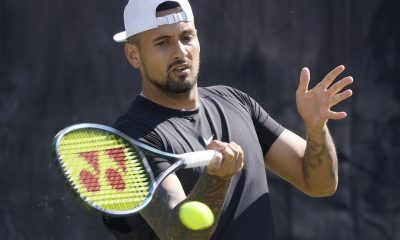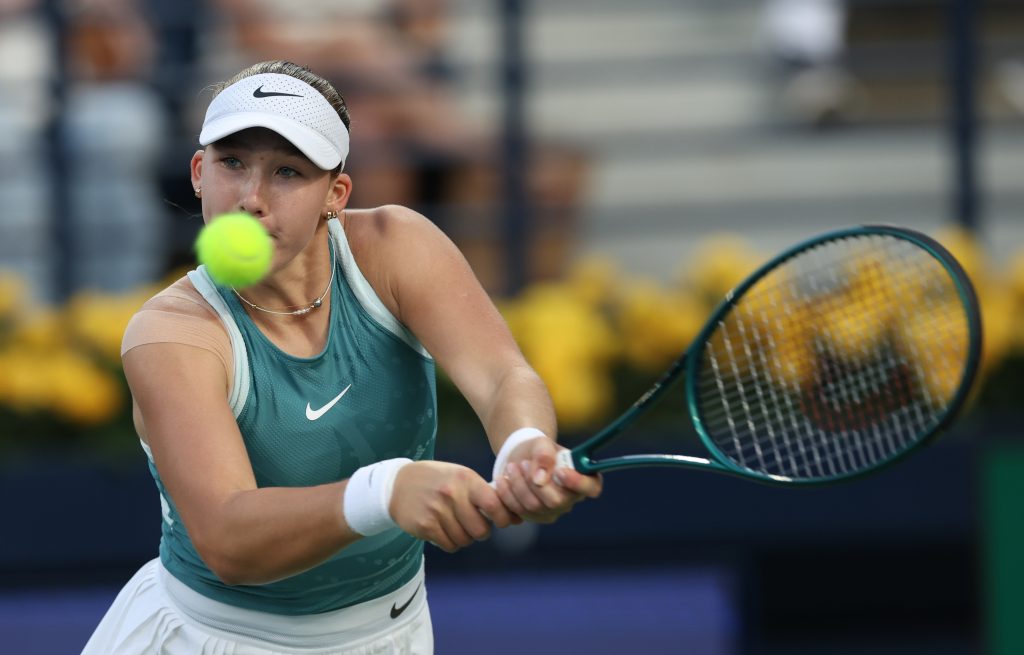The Stefano Vukic saga created a schism between her and the WTA Tour, and she failed to go beyond the 4th round of a single slam. The Kazakh powerhouse had lost her fear factor, inexplicably snatching defeat from the jaws of victory in several key encounters (that Montreal capitulation against Mboko being a case in point). But the former Wimbledon champ has bounced back from adversity, producing a late-season surge for the ages to be crowned WTA Finals champ! There were five different champs across the Major and WTA Finals spectrum this season (a stark contrast to the dominance of Sinneraz on the men’s side).
Rallying against the system
As I noted earlier, Rybakina was almost a non-entity in the slams this year, failing to reach a single quarterfinal. She was one of the chief critics of the WTA Tour’s psychotic scheduling changes, which increased the duration of some of the mandatory WTA 1000 events. She apparently battled insomnia and picked up little niggles during the season. As many other players have noted, extending the WTA 1000 schedule has altered the fabric of the campaign, creating greater periods of intense competition while also introducing strange periods of dormancy if you faced early elimination.
The Vukic issue
To make matters worse for Rybakina, she had to plough though much of the early portion of the season without long-term coach Stefano Vukic. Vukic was banned by the WTA Tour for breaching their code of conduct, allegedly verbally abusing the Kazakh Grand Slam champ. Independent investigators claimed he told Rybakina that she would still be picking potatoes in Russia, were it not for him. Amusing visual aside, it does sound like the ravings of a power-drunk Eastern-European megalomaniac. But Rybakina refuted their findings and lamented the absence of her controversial mentor. That drama- coupled with the calendar shifts- fostered a rebellious dissatisfaction.
Tough love?
Vukic’s ban was overturned in August and his return to the player’s box had an immediate effect on Rybakina’s fortunes. She has gone 18-5 since his return, winning the last eleven straight matches to end the year safely ensconced in the top five. Rybakina really started to pick up form in the Asian hardcourt swing, winning in Ningbo to put the heat on a flailing Mirra Andreeva. The Russian teenager then committed WTA Finals harikiri, bungling her visa situation to prevent her competing in Japan. Rybakina took full advantage, ninjaing her way into the finals courtesy of a semifinal finish. Rybakina appeared to be back to her grim, determined best, obviously using all the off-court drama has fuel. One area that underscores Vukic’s impact is her record against top-ten players. Rybakina went 3-5 against top-ten payers during Vukic’s absence. She rediscovered her BMT upon his return, going 8-1 against top-ten opposition since August. Regardless of his methods, you can’t deny the results (especially when she fiercely contends that nothing untoward has happened).
A final bristling with quality and controversy
Rybakina looked remarkable in round-robin action, coming through the trying duo of Anisimova and Swiatek before easing past alternate Alexandrova to preserve her 100% record. She showed grit to come back from a set down in her semifinal clash with Pegula before turning on the style against World No.1 Sabalenka, firing 13 aces to deny the Belarusian her maiden WTA Finals crown. There was little doubt as to who was the best player in Riyadh this past week. She even got one last opportunity to stick it to the man, snubbing the customary photoshoot with tour boss Portia Archer. It served as not only a pleasing personal jab for Rybakina, but as a final symbolic protest against a tour that has been largely oblivious to its members’ demands.
Can huge payday return Rybakina to the big-time?
There was a time where Rybakina- alongside Sabalenka and Swiatek- was considered a part of a so-called ‘Big Three’. Inconsistency has marred her progress over the last few years but victory in Riyadh could be her springboard to return to the upper echelons of the game. The Riyadh prize-pool of $5m was the largest in the history of women’s tennis (that could give anyone a boost). More importantly, both Sabalenka and Swiatek have shown vulnerabilities this year and Gauff has also had her struggles on the quicker surfaces. It feels like the tour is screaming out for an in-form, aggressive Rybakina. And they might just get that next year.

























